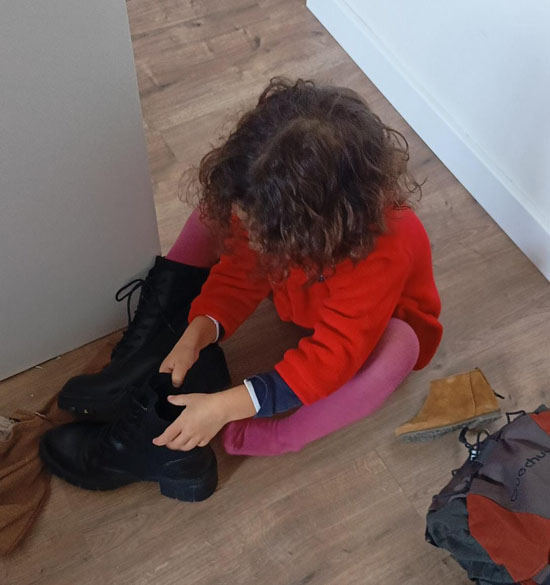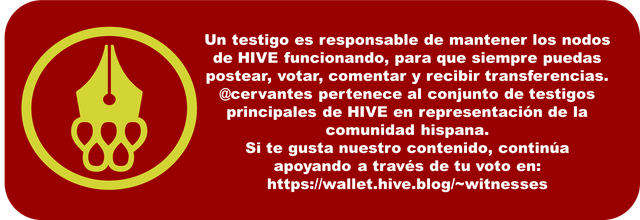¡Papá…enséñame responsabilidad…! | Dad...teach me responsibility...!

Luego de una media hora de conversación por teléfono mi nieta y yo comenzamos a entendernos. Ella tiene doce años, es muy inquieta y perspicaz. Le gusta analizar las cosas al detalle y ante cada interrogante siempre tiene una respuesta. La llamé para pedirle ayuda con un asunto de internet, en ese campo ella tiene mucho más habilidad que yo, es lógico, para ella el internet ha sido su medio natural, desde pequeña ha estado en contacto con esa tecnología.
En un momento de nuestra conversación me dice que no quiere comprometerse conmigo porque no quiere adquirir responsabilidades. Aquello me sorprendió, entendí que de algún modo se estaba rehusando a ayudarme. Y comenzamos una larga conversa donde hablamos de los sentimientos de las personas, de la importancia que tiene la responsabilidad en la vida, de la solidaridad ante las necesidades de los otros, en fin…de muchos temas.
Luego de muchas idas y venidas y de dar vueltas a la conversación la niña y yo caímos en cuenta que no estábamos hablando de lo mismo. Yo había entendido que ella había rehuido a la idea de adquirir una responsabilidad de enseñarme, lo que era parcialmente cierto. Sin embargo, ella estaba pensando en otra cosa, en sus responsabilidades y en la posibilidad de que la ayuda que yo le estaba pidiendo le impidiera cumplir sus compromisos. Después de todo ella también tiene sus compromisos escolares, sus clases de música, sus actividades deportivas…
Al final quedé muy satisfecho de todo lo conversado con mi nieta y me quedó muy claro su concepto de la responsabilidad. Es correcto cumplir primero con lo que ya se ha pautado. No se pueden adquirir nuevos compromisos a riesgo de sacrificar lo que ya se tiene comprometido.
La noción de responsabilidad es una de las más difíciles de adquirir, no nacemos con ella. Por el contrario, en los primeros tiempos de la crianza el niño puede formarse la idea que es el centro del mundo, un pequeño Rey, y que llegó a esta vida para ser cuidado y atendido. Esa imagen no es producto de ninguna fantasía. La fragilidad con que venimos al mundo nos hace seres muy vulnerables, de allí que en nuestros primeros tiempos solo demandemos cuidados y atenciones.

No es fácil determinar cuándo se deben inculcar las primeras nociones de responsabilidad, cada niño madura de modo distinto y cada uno comienza a comprender las cosas a su propio ritmo.
Pero sí es bueno comenzar a inculcar la responsabilidad lo más pequeño que se pueda, de ese modo el proceso de adquisición de este importante valor social se irá dando de forma “natural”.
Son muchas las cosas que se pueden hacer para iniciar al niño en este tema. Algo tan sencillo como recoger su plato de la mesa y entregárselo al adulto encargado de limpiarlo lo pueden hacer los niños desde muy pequeños. Luego habrá otras tareas que se pueden ir incorporando como no dejar sus juguetes regados en cualquier parte, guardar su ropa y zapatos en el sitio indicado. En fin… las posibilidades son innumerables.
Incorporando estas sencillas prácticas cuando el niño es capaz de comprenderlas, es muy probable que al llegar el momento de ir a la escuela — donde sí necesita el niño tener bastante desarrollado el concepto de la responsabilidad— no haya problemas con eso y se pueda dar sin mayores traumas esa difícil transición al mundo de la escuela.
La formación de la responsabilidad no es un asunto que se vaya a lograr de un día a otro, es un concepto que necesita ser reforzado sistemáticamente, todos los días y a todas horas. Recordemos que para el niño siempre va a resultar más fácil el que otros les resuelvan las cosas. Y aquí los padres tenemos mucho que aportar, es demasiado importante que en este aspecto podamos orientar al niño con claridad y firmeza.
Gracias por tu tiempo.


After about half an hour of conversation on the phone my granddaughter and I began to understand each other. She is twelve years old, very restless and perceptive. She likes to analyze things in detail and always has an answer to every question. I called her to ask for help with an internet issue, in that field she has much more skill than me, it is logical, for her the internet has been her natural medium, since she was a little girl she has been in contact with that technology.
At one point in our conversation she tells me that she doesn't want to commit herself to me because she doesn't want to acquire responsibilities. That surprised me, I understood that somehow she was refusing to help me. And we started a long conversation where we talked about people's feelings, about the importance of responsibility in life, about solidarity with the needs of others, in short... about many topics.
After a lot of back and forth and a lot of spinning of the conversation, the girl and I realized that we were not talking about the same thing. I had understood that she had shied away from the idea of taking on the responsibility of teaching me, which was partially true. However, she was thinking about something else, about her responsibilities and the possibility that the help I was asking for might prevent her from fulfilling her commitments. After all, she also has her school commitments, her music lessons, her sporting activities...
In the end I was very satisfied with everything I discussed with my granddaughter and her concept of responsibility was very clear to me. It is right to fulfill first what has already been agreed upon. You cannot make new commitments at the risk of sacrificing what you have already committed to.
The notion of responsibility is one of the most difficult to acquire; we are not born with it. On the contrary, in the early stages of upbringing, the child may form the idea that he/she is the center of the world, a little King, and that he/she came to this life to be cared for and looked after. This image is not the product of any fantasy. The fragility with which we come into the world makes us very vulnerable beings, hence in our early days we demand only care and attention.

It is not easy to determine when the first notions of responsibility should be instilled; each child matures differently and each one begins to understand things at his or her own pace.
But it is good to start instilling responsibility as early as possible, so that the process of acquiring this important social value will come "naturally".
There are many things that can be done to initiate the child in this subject. Something as simple as picking up their plate from the table and handing it to the adult in charge of cleaning it can be done by children from a very young age. Then there will be other tasks that can be incorporated such as not leaving their toys scattered anywhere, keeping their clothes and shoes in the right place. In short... the possibilities are endless.
By incorporating these simple practices when the child is able to understand them, it is very likely that when the time comes to go to school, where the child needs to have a well-developed concept of responsibility, there will be no problems with that and the difficult transition to the world of school can be made without major problems.
The formation of responsibility is not a matter that will be achieved from one day to the next, it is a concept that needs to be reinforced systematically, every day and at all times. Let's remember that it will always be easier for children to have others solve things for them. And here we parents have a lot to contribute, it is too important that in this aspect we can guide the child with clarity and firmness.
Thank you for your time.
Translated with www.DeepL.com/Translator (free version)







Te invito a apoyar este proyecto como witness y a formar parte de esta gran comunidad uniéndote a su Discord en el siguiente enlace:
Discord de la comunidad Cervantes

You can vote for @ocd-witness, with HiveSigner or on Hive Witnesses.

